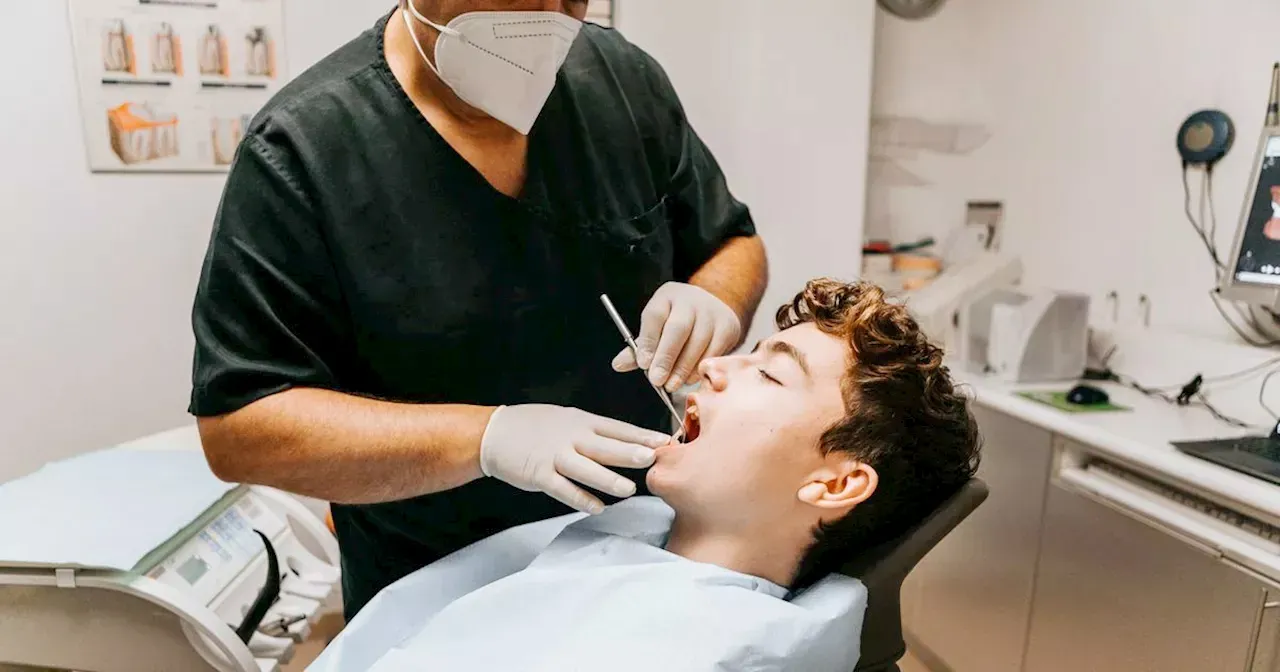Gingivitis: Causes And Treatment
READ ON FORBES: https://www.forbes.com/health/body/gingivitis-causes-and-treatment/
Plaque often leads to gingivitis, according to Johns Hopkins Medicine, especially where the gum and tooth meet.
Your mouth naturally produces plaque—a sticky, nearly invisible film that coats teeth—and if you regularly remove it with brushing and flossing, it typically doesn’t cause problems, according to the American Academy of Periodontology (AAP). But plaque contains bacteria that releases acids damaging to gums, notes the American Dental Association (ADA).
When this bacteria and its byproducts build up and harden on teeth because of poor dental hygiene, they can inflame and irritate the gums, leading to gingivitis. Tartar needs to be removed by a dental professional.
While everyone has plaque, some have risk factors that make them more prone to it than others. In addition to improper or irregular brushing and flossing, some factors that can predispose you to gingivitis are:
Medications: Certain anticonvulsants used to treat seizures, calcium channel blockers that combat high blood pressure and immunosuppressants used to prevent organ rejection in transplant patients can cause an overgrowth of gum tissue, or gingival hyperplasia. That excess tissue can grow so aggressively it covers the crowns of teeth, making it hard to fully remove gum-damaging plaque.
Other medications—in particular, antihistamines to control allergies, blood pressure medicine and certain antidepressants—can reduce the amount of plaque-cleansing saliva the mouth produces.
Tobacco smoke: Smokers tend to have more periodontal disease than nonsmokers[2]. “Tobacco can decimate the mouth’s ‘good’ bacteria, which keep the ‘bad’ ones in check,” says Dr. Hoss. “Smoking can also weaken the body’s immune system, reducing its ability to fight gum infections.”
Diabetes: Periodontal disease is two-to-three times more common in people with diabetes than in those without[3]. Diabetes initiates an inflammatory response in the body, including in the gums, and many medications used to treat diabetes can promote dry mouth.
Diabetes also creates changes in your blood vessels that can ultimately weaken gums and the underlying bony structures of teeth, says Cedars Sinai.
Pregnancy: Up to 75% of pregnant women have gingivitis when they’re expecting, according to the CDC[4]. The hormones estrogen and progesterone, which surge during pregnancy, are likely to blame. These hormones increase blood flow to the gums, making them more sensitive to irritants like plaque.
Age: There’s a lot of wear and tear on teeth and gums as you age. Almost half of adults over 30 have some periodontal disease, notes the CDC. That number jumps to 70% by age 65[5].
Poor nutrition: Without an adequate supply of vitamins and minerals, it’s hard for your immune system to fight infections like gingivitis. Low levels of certain vitamins, including vitamins C, D and a variety of the B vitamins, have been associated with periodontal disease.
Genes: While studies are conflicting, some research estimates that 30% to 50% of periodontal disease is inherited, according to findings in the Journal of Dental Research[6].
Gender: More than half of men have gum disease versus roughly 38% of women, notes the AAP[7]. Men aren’t more susceptible to gum disease, says Dr. Richardson. “But statistically, men report visiting an oral health specialist less frequently than women, which may lead to men having more cases of gum disease.”
Braces: Braces (as well as ill-fitting dentures and bridges) make it difficult to floss and brush thoroughly. Research shows that people with fixed orthodontic appliances like braces have more gum inflammation, recession and visible plaque after orthodontic treatment than before.
If gingivitis progresses into more serious periodontal disease, the gums may feel tender and pull away from the teeth instead of wrapping snugly around them. This loosening of the gums allows bacteria to burrow deeper, destroying tissue and bone and leading to tooth loss.
But that may not just affect your gums.
“The oral microbes or their toxins can gain access into the bloodstream through bleeding gums, and then they can travel anywhere in the body causing a local infection or an inflammatory response,” says Dr. Hoss. “For example, they can travel to the heart, lungs, brain, joints or to an unborn baby.”
Gingivitis is a common condition that may be reversible with the right care. If it goes untreated to the point of more serious periodontal disease, though, the following risks may be associated:
Cardiovascular disease: People with periodontal disease are two-to-three times more likely to have a heart attack or stroke than those with healthy gums, according to Harvard Health[8].
Respiratory infections: People with untreated periodontal disease can breathe in the bacteria, acids and toxins lurking in their gums, which can then settle in the lungs and cause respiratory problems—everything from pneumonia to chronic obstructive pulmonary disease (COPD).
Diabetes: Diabetes can predispose you to periodontal disease—and vice versa. People with uncontrolled periodontal disease—probably because of the way inflammation acts on blood sugar regulation—also have a higher risk of diabetes. “Interestingly, there have been studies that have demonstrated improved home care can improve diabetic metrics, such as decreased blood glucose [blood sugar],” notes Dr. Richardson.
Home Diabetes And Heart Test
The home diabetes and heart test helps to identify both diabetes or pre-diabetes, as well as giving you an insight into your cardiovascular health.
Impotence: Thanks to the impact chronic inflammation can have on blood vessels, men with periodontal disease are more likely than men without it to develop impotence.
Preterm birth: Having periodontitis (a severe form of gum disease that leads to tooth loss) can increase a person’s chance of having a preterm birth (before 37 weeks gestation) six-fold, putting their babies at risk for health problems such as low birth weight and digestive and breathing issues, according to research in BMC Pregnancy Childbirth[9]. It’s important to note, however, that while some studies show an association between preterm birth and periodontitis, others don’t.
Cancer: Periodontal disease has been associated with cancer, particularly in men. Research shows that men with gum disease can be 49% more likely than women to develop kidney cancer, 54% more likely to develop pancreatic cancer and 30% more likely to develop blood cancers, notes the AAP[10].
Home Colon Cancer Screening Test
LetsGetChecked’s home colon cancer screening test can help identify the presence of cancerous or precancerous growths in the colon by detecting blood that are invisible to the naked eye.









